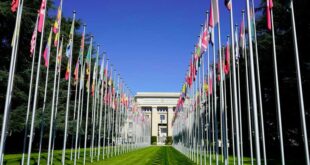According to paragraph 67 of the new nuclear deal with Iran, IAEA inspectors in charge of monitoring the agreement may only be “from nations that have diplomatic relations with Iran.” This means that no inspectors will be American (unless the U.S. unexpectedly reestablishes the diplomatic ties with Iran that it severed in 1980).
This seems like a strange, telling concession by the Obama administration. But there’s an extremely good reason for Iran to insist on such conditions: during the UN’s weapons inspections of Iraq during the 1990s, some inspectors were American — and some of them were spies placed there in an apparent effort to conduct espionage against, and eventually overthrow, the Iraqi government. This was one of the key reasons Iraqi relations with the inspectors were so rocky, since Iraq repeatedly blocked inspection teams because of the presence of Americans.
But now the no-Americans-allowed-in-Iran clause has become a talking pointin right-wing media. And when Wolf Blitzer recently interviewed National Security Advisor Susan Rice on CNN, he felt it was so crucial that he did what television hosts almost never do: question a powerful guest until they get a straight answer out of them.
BLITZER: No Americans will directly be involved in any on the ground inspections in Iran, is that right?
RICE: Wolf, yes, the IAEA, which is a highly respected international organization, will field an international team of inspectors. And those inspectors will, in all likelihood, come from IAEA member states, most of whom have diplomatic relations with Iran. We, of course, are a rare exception.
BLITZER: So no one…
RICE: The British have diplomatic relations…
BLITZER: — so no Americans…
RICE: — the French…
BLITZER: — will be — I just want to be precise on this … No Americans will be on the ground in Iran actually inspecting?
RICE: No Americans will be part of the IAEA inspection teams.
BLITZER: Will Americans be outside of the IAEA inspection teams? … I’m talking about American government officials or military officials who could be inspecting … I take it they will not be doing that?
RICE: I don’t anticipate that, no.
Rice here was caught between two unpleasant options, and it’s significant which one she chose. On the one hand, she didn’t want to candidly acknowledge something that, shorn of historical context, makes the Obama administration look bad. But she clearly preferred that to making the Obama administration look better by explaining the context that would make the United States look horrible.
Also significant is that Wolf Blitzer personally covered the issue of U.S. espionage against Iraq during the 1990s — yet as much as he wanted to ask Rice hard questions, he scrupulously avoided questions that would have been even harder.
 Geostrategic Media Political Commentary, Analysis, Security, Defense
Geostrategic Media Political Commentary, Analysis, Security, Defense





